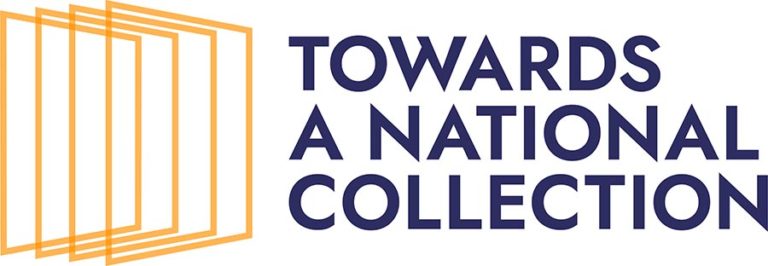In the midst of a global pandemic, groups and individuals have been looking to digital spaces and historical data to feel more in control, connected and educated. Since the lockdown began, engagement with digital heritage collections and content has risen immensely.
A timely new research project, led by The National Archives, is examining the ways in which people volunteer their time to work on research projects that are important to them, and the ways that heritage institutions go about engaging them in this work.
Engaging Crowds: Citizen research and heritage data at scale recognises the contribution of volunteer researchers and aims to investigate the practice of citizen research in the heritage sector. The project explores the current and potential practice of engaging diverse audiences with the digital creation, use and reuse of heritage data. It asks questions about how audiences currently engage with online citizen research projects, how different institutions assess, present and value their work, and the best ways to engage volunteers in these projects in the future.
It is one of eight foundational projects in the Arts and Humanities Research Council (AHRC) ‘Towards a National Collection: Opening UK Heritage to the World’ programme. This is a five-year Strategic Priorities Funded programme that aims to benefit public audiences and researchers by making the UK’s unparalleled heritage collections increasingly discoverable as a unified ‘virtual collection’, removing barriers between different collections and extending access beyond the physical boundaries of their location. All of the projects are led by Independent Research Organisations (organisations with the independent capability to undertake and lead research programmes) like the British Library, the V&A, and other major cultural institutions.

‘The Engaging Crowds project provides a focused opportunity to examine the role of citizen researchers within the heritage sector, and to give them more control over the work they do. The outputs and insights gained from the project will help our organisation, and hopefully others, to develop best practice for engaging citizen researchers in a variety of innovative ways whilst demonstrating the potential impact of digital tools on heritage research,’ says Valerie Johnson, Director of Research and Collections at The National Archives.
Engaging Crowds is led by The National Archives, in collaboration with the Zooniverse team at the University of Oxford, Royal Botanic Garden Edinburgh, and National Maritime Museum. As part of the project, Zooniverse, a free, open source platform with more than 2.1 million volunteers worldwide, is developing a new indexing tool that will give volunteers more control over how they work their way through research projects. The use of this tool will then be evaluated as it relates to three new citizen research projects, including one run by The National Archives. A report based on these findings together will recommend the best ways of encouraging and supporting meaningful public interaction with heritage collections.
‘We at Zooniverse are very excited about this collaborative effort,’ says Samantha Blickhan, Humanities Research Lead for Zooniverse. ‘The indexing tool we are building as part of Engaging Crowds will offer volunteers a greater hand in deciding what path(s) to take in how they participate in Zooniverse projects – by choosing to work on subject matter they are already interested in, or through following a specific path of discovery and curiosity while working on unfamiliar content. We look forward to working with the research teams and volunteer community, hearing their feedback, and working together to create opportunities for deeper engagement with projects.’
The National Archives’ forthcoming citizen research project, Scarlets and Blues, takes a behind-the scenes-look at the lives of people at the Royal Hospital Chelsea during the First World War. (The project title references the coats worn by the Chelsea Pensioners). Volunteers will use the indexing tool to work their way through records from the Royal Hospital Chelsea’s meeting minutes, which provide a fascinating glimpse into the lives of women workers and hospital staff, and the care given to injured veterans. Volunteers will help glean important data for a deeper understanding of social and military history.

A report based on the project findings will recommend the best ways of encouraging and supporting meaningful public interaction with heritage collections. This research is vital at a time where there is huge potential for diversity and inclusion in citizen research.
‘The fantastic contribution of volunteers is key to the work of The National Archives and other heritage institutions. The results of Engaging Crowds will really help improve the understanding of how we can engage with people and improve the ways we do this,’ says Jenni Orme, Head of Collections Expertise and Engagement at The National Archives. ‘We are committed to being a truly inclusive archive. The greater the participation of our audiences, the more we can learn and the better we can engage the broadest group of people possible with our collections to develop a shared understanding of our heritage.’
Divisions between work and leisure, home and office, the real and the virtual are becoming increasingly blurred. As a result, it behoves us to study the ways we can create better engagement and access with the public, and connect individuals and collections nationwide. Engaging citizens is crucial, as we need to recognise the value of work done by volunteers in order to open collections that have not yet been fully studied. Maximising the re-use of heritage data is vital, so that the efforts of volunteers can be built on with further research. Furthermore, understanding and informing heritage organisations of best practice could change the course of citizen research in the future.
This sounds both interesting and worthwhile. I already volunteer with my local archive (Perth & Kinross Archive) and shall make sure they are aware of this initiative. But time, or lack of it, unfortunately prevents me from involvement in your project.